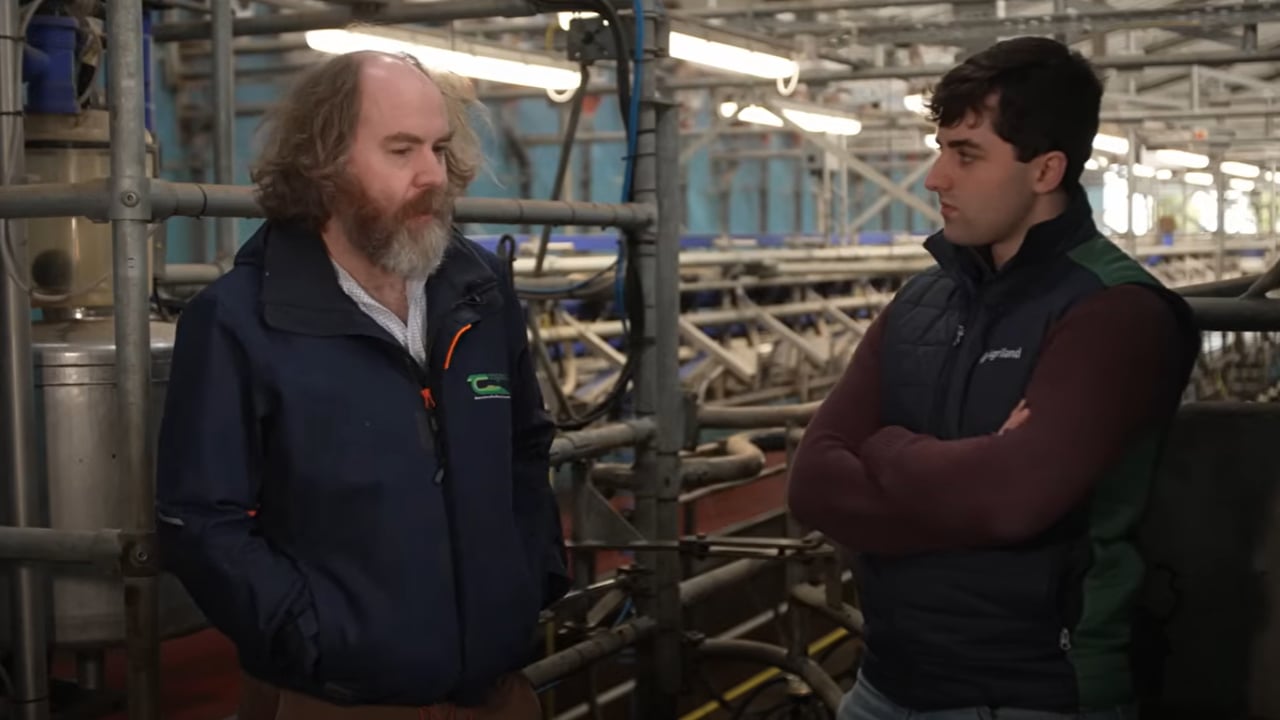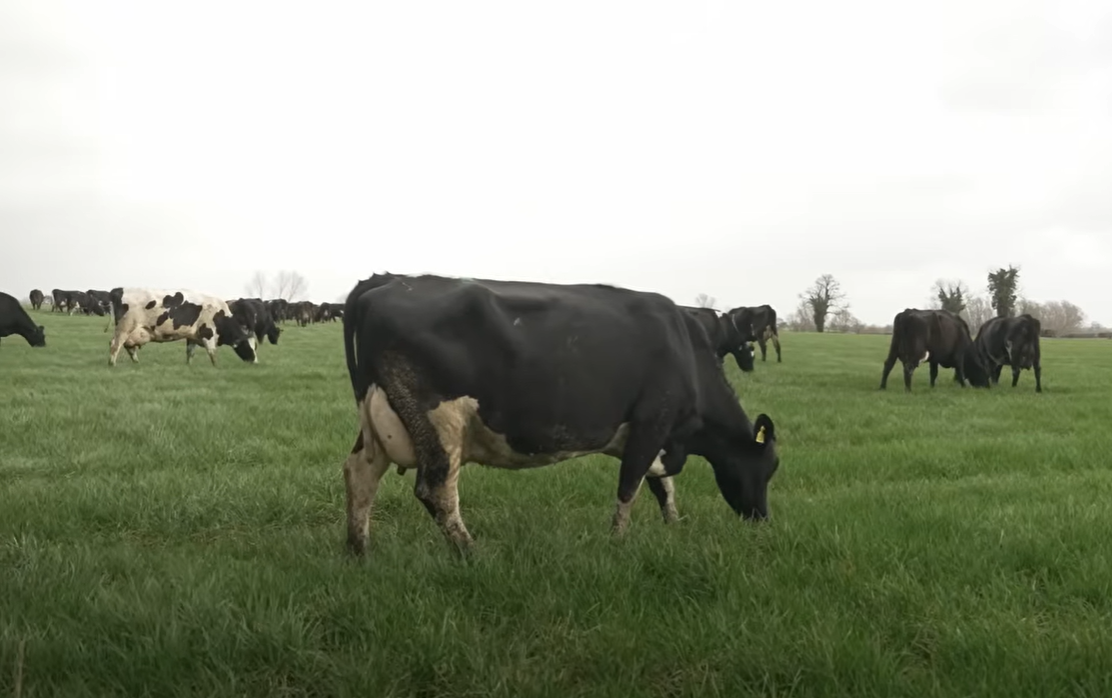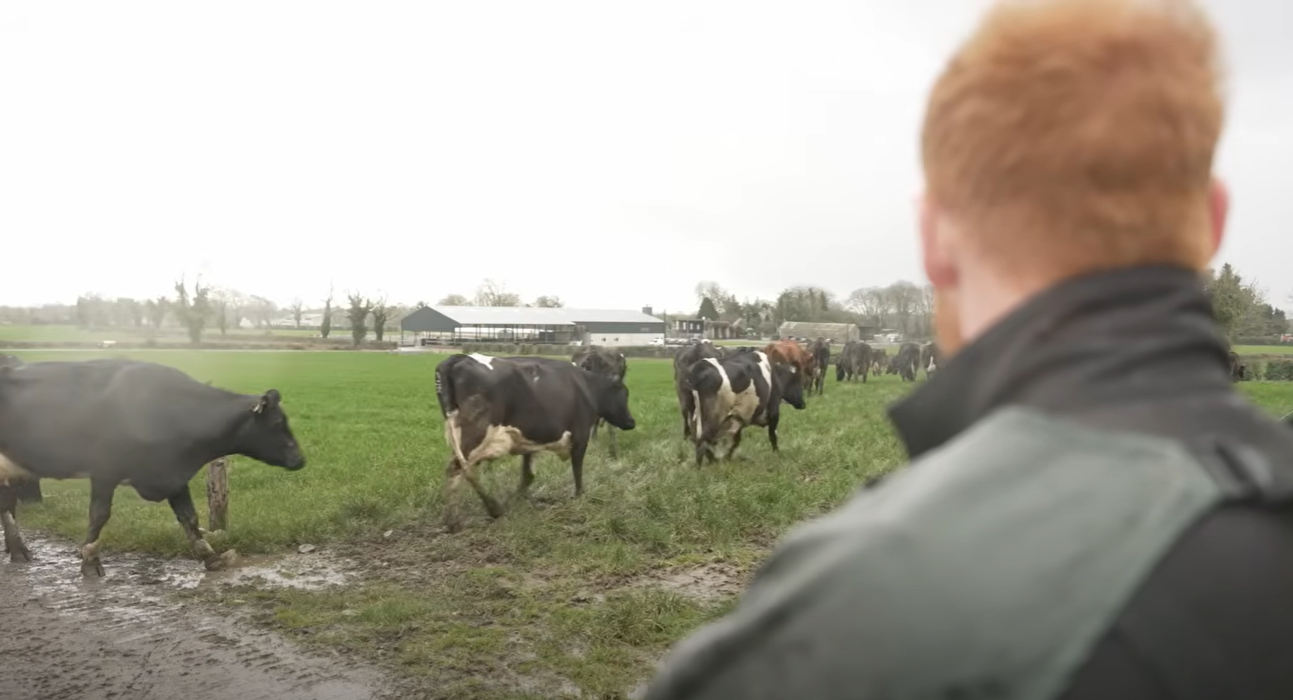Farming for the Future Series


The series took place on the Corrigan farm near Trim, Co. Meath where Eoin Corrigan, a new entrant to dairy in 2021 is calving down 275 cows this spring with a strong retinue of family and team.
Patton talked about how there needs to be more certainty around the nitrates derogation and around environmental regulations for Eoin and other farmers and said that "certainty would make a huge difference."
He spoke about the need to make the industry an attractive place for young people and about how farmers are worried about regulations, but also said, "look inside the farm gate, there's huge scope (for improvement) there".
Eoin is a perfect example of this, as a young farmer who is fresh to the industry. He had his herd achieving over 520kg of milk solids last year and won the Lakeland Dairies Quality Milk Award in 2024, representing the co-op at the NDC / Kerrygold Milk Quality Awards.
We have moved past a period of expansion into a period of consolidation, perhaps reaching the natural scope of milk production in Ireland, Patton said: "Industry has slowed down, but at an individual farm level, I think we are really beginning to encourage farmers to look at opportunities".
The opportunities Joe talks about are in maximising the performance output of each herd by getting more grass into cows' diets, which pays in the long run.
Efficiently using supplements and having the right type of cow on the farm, which had good solids percentages, good health, low somatic cell count (SCC) and which can go in calf easily, is considered crucial.

Patton talked about the range in profit margin per cow from 1,000 profit monitor dairy farmers as reaching €800-900 in terms of profit margin between the top one-third of performers and the bottom one-third.
"At a typical scale, that's €90,000 in a difference in profits," Joe said.
He emphasised that this difference can be made up with the "right cow, grazing the right grass, calving at the right time of year, and a good level of cost control."
The topic of generation renewal is a concern in the agricultural sector as the perception can often be that the likes of dairy farming is pure hardship for little reward.
Like all industries, there are good years and there are bad years. The frustrating thing in agriculture in recent years has been the drastic fluctuation in the cost of production and milk price in recent years.
However, it seems as though we have moved past base milk prices of 30c/L and are moving closer to 50c/L being the new norm, which is only in ascendance with the higher costs of production.
The hope is that major price fluctuations have settled and that there has to be a profit motive on the farm now, otherwise it's not going to attract younger people.
Patton said: "What does a younger person want? They want a good work life balance, structured free time and a good level of income".
Patton believes that what is catching people out is the perception of work-life balance and labour, saying there needs to be a better labour structure on farms with scheduled time off, and a defined end of the working day.
"We have to look at this way of life in a slightly different way, there has to be room for other things as well and if we are going to be realistic about generation renewal, we have to build that into it", Joe added.
Patton emphasised that the opportunities for time off need to be utilised and said, "dairy farming is the ultimate work from home job" if we look at it more positively.
It was discussed that opportunities in dairy have to be viable and that is where policy and incentives come into play. An industry cannot be reliant and built on incentives alone, but needs to be structured around a sustainable family income.
Family transfers, partnerships, and long-term leasing opportunities need to brought forward so people have a better understanding of what the opportunities are and to get the conversation going about how we can structure these agreements.
"If there is a place to have a full time career and a career that can develop within the agriculture industry, obviously dairy is one of the key areas where you can make that happen", Patton added.
